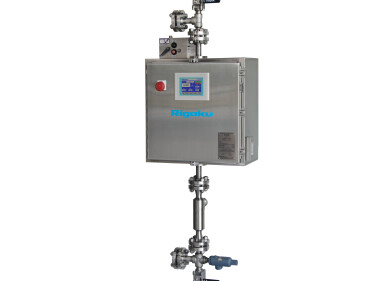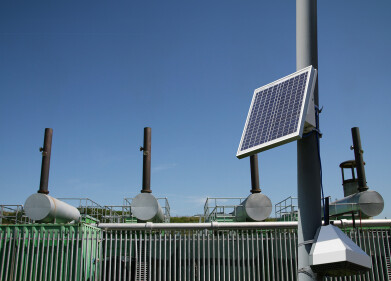Measurement and Testing
What Does BP Have in Store for Iraq?
Feb 05 2018
It’s fair to say Iraq’s oilfields have been through a turbulent period in recent years. Since 2014, their fate has been subject to a complicated civil war involving Iraqi government forces, Kurdish militants and ISIL. Key oil refineries have been targeted by ISIL and Kurdish forces, knowing that the country is reliant on them as a source of income.
As a result, a number of high profile energy companies were forced to pull out. However, BP has recently returned to Iraq, with big plans to increase crude oil production. Read on as we look at what the oil giants have in store for the previously war-torn region.
Forced to withdraw
With oil refineries being targeted, attacked and counterattacked by opposing forces, it’s no surprise that a number of major oil companies have withdrawn from Iraq. Ongoing conflict makes it almost impossible to secure payment for crude oil from the concerned regions, meaning there is a lot of uncertainty for any companies operating there.
That’s why BP withdrew from Iraq’s oil fields in 2015, along with the likes of Exxon, Shell and Gulf Keystone in 2015-2016.
Looking to Kirkuk
With more than 10 billion barrels of proven oil reserves in 1998, the Kirkuk Field is arguably the most important in Iraq. It was seized by the Kurdistan Regional Government in 2014, but has since been taken back under control by the Iraqi government control in October 2017.
That control has sparked interest from major oil companies, who are looking to return to the oil-rich Iraqi region. Chevron announced their plans to resume drilling in January, with Rosneft also beginning work in Kurdistan. However, it’s BP that seems to be making the biggest commitment for the future.
BP’s vote of confidence
In January 2018, an initial agreement was signed between BP and the Iraqi government. It outlines aims to restore their oil production to around 750,000 barrels of oil per day. As well as emphasising Iraq’s control of the region, the agreement acts as a major vote of confidence for Iraq and the future of their oil industry.
Kirkuk’s fields currently have a capacity of 450,000 barrels per day, but are only fulfilling around 150,000 barrels per day at present. So, how will BP increase output by so much? They’re planning to invest heavily in the fields to unlock their potential, with modern technology and expertise to redevelop Kirkuk in the long term. To start with, they oil giants are going to use seismic survey operations to reassess the fields.
Want to find out more about the latest innovations in the petroleum industry? The article ‘Major success for PEFTEC 2017 in Antwerp’ looks at the success of a specialist event, focused on the testing, analysis and monitoring of downstream oil products, chemicals and petrochemicals.
Digital Edition
PIN 25.5 Oct/Nov 2024
November 2024
Analytical Instrumentation - Picturing Viscosity – How Can a Viscometer or a Rheometer Benefit You? - Sustainable Grease Formulations: Evaluating Key Performance Parameters and Testing Method...
View all digital editions
Events
Dec 03 2024 Dusseldorf, Germany
Dec 08 2024 Anaheim, CA, USA
Turkey & Black Sea Oil and Gas
Dec 11 2024 Istanbul, Turkey
Dec 19 2024 Aurangabad, India
Jan 20 2025 San Diego, CA, USA



















